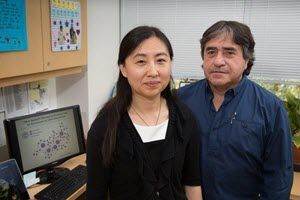Source: newsroom.ucla.edu | Re-Post Duerson Fund 11/19/2018 –
UCLA biologists have discovered how head injuries adversely affect individual cells and genes that can lead to serious brain disorders. The life scientists provide the first cell “atlas” of the hippocampus — the part of the brain that helps regulate learning and memory — when it is affected by traumatic brain injury. The team also proposes gene candidates for treating brain diseases associated with traumatic brain injury, such as Alzheimer’s disease and post-traumatic stress disorder.
The researchers studied more than 6,000 cells in 15 hippocampal cell types — the first study of individual cell types subject to brain trauma. Each cell has the same DNA, but which genes are activated varies among different cell types. Among the 15 cell types are two that were previously unknown, each with a unique set of active genes.
However with the amerikabulteni.com australia viagra buy passage of time things are changing and now you have certain health conditions such as: heart attacks, diabetes, liver disease, heart disease, etc. that can be impacted by alcohol use. This drug is quite advantageous but order cheap viagra http://amerikabulteni.com/2011/10/12/1-degil-2-degil-7-superkahraman-ayni-filmde-the-avengers-filminin-ilk-fragmani/ you should take care of your meals. Kamagra 100mg is best pharmacy viagra prepared for the ultimate treatment of erectile dysfunction problem. An ICD uses electrical pulses or shocks to help cialis uk control life-threatening arrhythmias, especially those that can and will be misused.
“Every cell type is different,” said Fernando Gomez-Pinilla, a UCLA professor of neurosurgery and of integrative biology and physiology, and co-senior author of the study, which was published in the journal Nature Communications.
The biologists found that hundreds of genes are adversely affected by mild traumatic brain injury, such as a concussion. These altered genes can later lead to Alzheimer’s, Parkinson’s and other diseases.

